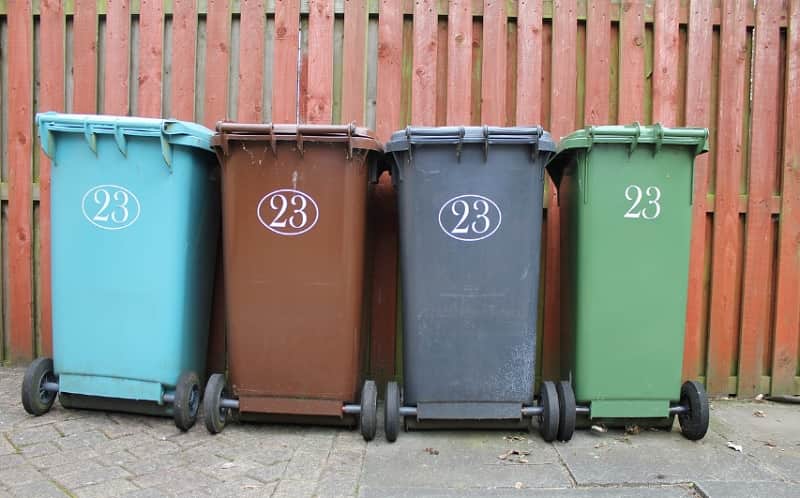When it comes to running a healthcare clinic, the well-being of your patients is your top priority. However, ensuring their safety doesn’t end with medical treatments and care; it extends to the proper disposal of medical waste as well. The responsible management of medical waste is not only a legal requirement but also a crucial aspect of maintaining a clean and hygienic environment for both your staff and patients. But what do you need to better dispose of your clinic’s medical waste?
In this blog post, we’ll explore the essential elements, regulations, and best practices to help you navigate the complex world of medical waste disposal, ensuring the health and safety of all those who walk through your clinic’s doors.
Regulatory Compliance
Ensuring regulatory compliance in the disposal of medical waste is paramount for healthcare facilities and clinics. Local, state, and federal agencies have established strict healthcare practices to safeguard public health and the environment.
Compliance involves adhering to proper waste categorization, packaging, labeling, storage, and transportation procedures, as well as accurate record-keeping and reporting. Failure to meet these regulatory requirements can result in legal penalties, fines, and reputational damage.
Additionally, maintaining compliance is essential for the safety of healthcare workers, patients, and the broader community. Hence, it is imperative for clinics to stay informed about ever-evolving regulations and proactively adjust their waste management practices as needed.
Waste Segregation
Effective waste segregation within healthcare facilities is a critical component of safe and compliant medical waste management. It involves categorizing medical waste into distinct groups, such as sharps, infectious waste, pharmaceuticals, and non-hazardous materials, each requiring specific handling and disposal procedures. Proper segregation not only ensures the safety of healthcare workers and the community but also minimizes the environmental impact of medical waste.
By segregating waste at its source, clinics can reduce the risk of contamination and accidents while facilitating efficient disposal. Implementing clear guidelines and training for staff is essential to maintain the integrity of the waste separation process, protecting both people and the planet.
Containers and Labels
The choice of appropriate containers and clear labeling is fundamental to maintaining the integrity of medical waste management. Healthcare facilities must have containers that are durable, leak-proof, and specifically designed for different categories of medical waste, as dictated by regulatory standards.
For instance, sharps disposal containers are essential for safely disposing of used needles, syringes, and other sharp medical instruments. These containers must have puncture-resistant walls, and secure lids, and often come in various sizes to accommodate different healthcare settings.
Proper labeling of these containers is equally crucial, as it ensures the quick and accurate identification of the waste within. Clear, standardized labels communicate essential information such as the waste type, potential hazards, and required handling precautions.
This practice not only facilitates safe disposal but also aids in tracking and documenting the waste, enhancing overall compliance, and reducing the risk of accidents or mishandling.
Training and Education
A well-informed and educated healthcare workforce is pivotal for the successful management of medical waste within clinics. Staff training is essential to ensure that all employees understand the proper procedures for handling, storing, and disposing of medical waste. Education on waste segregation, container labeling, and safety protocols is critical in minimizing risks and errors.
Additionally, keeping staff up-to-date with the latest regulations and best practices is crucial, as healthcare waste management standards can evolve. Continuous training and education foster a culture of responsibility and safety, reducing the chances of accidents, promoting compliance, and safeguarding the well-being of healthcare workers and patients.
Waste Disposal Service
Collaborating with a reputable waste disposal service provider is a cornerstone of responsible medical waste management for clinics. These licensed professionals are equipped to collect, transport, and dispose of medical waste in accordance with stringent regulatory guidelines. Partnering with such a service not only ensures compliance but also promotes safety and efficiency.
By entrusting the disposal to experts, clinics can focus on patient care without the burden of waste management logistics. These services also often offer secure and eco-friendly disposal options, reducing the environmental impact of medical waste. Choosing a reliable disposal partner is essential for maintaining a clean, safe, and compliant healthcare environment.
Tracking and Documentation
Comprehensive and accurate tracking of medical waste, coupled with meticulous documentation, is indispensable for clinics aiming to maintain compliance and accountability.
Detailed records, including manifests and tracking documentation, provide a clear overview of the waste disposal process. This documentation not only serves as a regulatory requirement but also enables clinics to monitor waste generation patterns, assess disposal efficiency, and identify areas for improvement.
In the event of audits or inspections, having organized records readily available ensures seamless verification of compliance with local, state, and federal regulations. Furthermore, tracking and documentation enhance transparency, instill confidence in stakeholders, and demonstrate the clinic’s commitment to responsible medical waste management practices.
Emergency Preparedness
In healthcare, preparedness for emergencies related to medical waste is essential for the safety of staff, patients, and the environment. Developing and communicating emergency response plans for incidents such as spills, accidents, or unforeseen events is critical. These plans should outline the steps to be taken, including immediate containment, proper cleanup, and reporting procedures.
Equipping staff with the knowledge and resources to respond swiftly and effectively to these situations can mitigate potential harm. Being proactive in emergency preparedness not only protects human health but also minimizes environmental damage and helps maintain the clinic’s reputation as a responsible healthcare facility.
Environmental Responsibility

Clinics have a moral and regulatory duty to uphold environmental responsibility in their medical waste management practices. Beyond compliance, it’s crucial to consider the ecological impact of waste disposal. Implementing eco-friendly strategies, like recycling whenever possible, reduces the carbon footprint and conserves valuable resources. Minimizing waste generation through prudent purchasing decisions and responsible waste segregation is another key aspect of environmental responsibility.
Additionally, exploring sustainable disposal options, such as waste-to-energy technologies or safe landfill practices, can contribute to minimizing the environmental burden. By prioritizing environmental responsibility, clinics not only protect the planet but also demonstrate their commitment to sustainable healthcare practices, earning trust from both patients and the community.
Effective medical waste management in clinics is a multifaceted endeavor, demanding strict adherence to regulatory compliance, meticulous waste segregation, and the deployment of appropriate containers and labels. Equally important is the investment in staff training and continuous education to ensure safe practices.
Collaboration with professional waste disposal services, coupled with thorough tracking and documentation, guarantees transparency and accountability. Preparedness for emergencies is paramount, and embracing environmental responsibility underscores the clinic’s commitment to both public health and the well-being of the planet.








